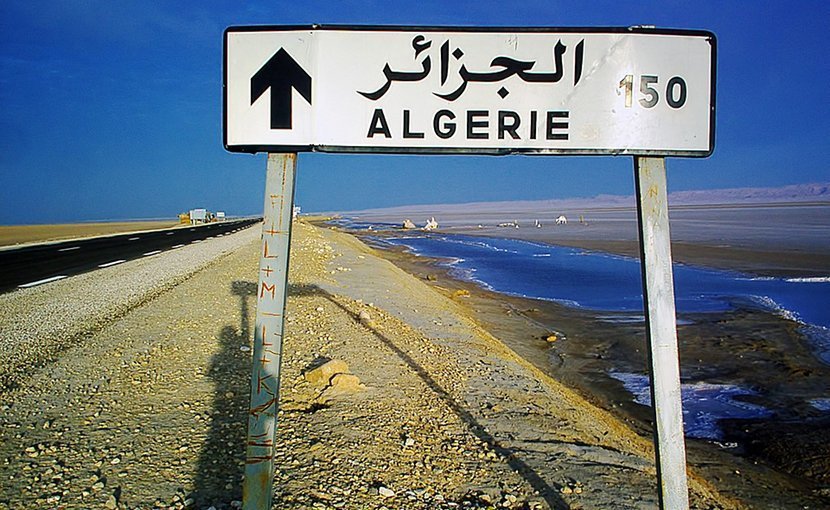
Within the geopolitical framework of North Africa, Algeria and Sudan are undergoing profound and irreversible change. The images of hundreds of thousands of people walking the streets of major cities and being met with limited violence is making possible the environment in which the next chapter in these countries’ respective stories is one of moving forward.
This is not Arab Spring II because the drivers of change in each country are different. The timing of the upheavals is only due to temporal issues related to each country’s immediate history and the surrounding geopolitical environment, which is moving quickly from one moment to another.
Algeria is preparing for a presidential election in which the main candidate is the incumbent, President Abdelaziz Bouteflika. There is nobody posing a real challenge to his position. Bouteflika and Algerian politics are declining and thus this stagnant era will likely pass soon. The key question is how Algeria’s business elites will react and be part of the transition of power to Algeria’s next leader.
In turn, Sudan has been witnessing ongoing protests across the country for the past several weeks, and these protests show no sign of abating. President Omar Al-Bashir’s decision to transition the leadership to a new format while he tries to contain the crisis and stop the protests is now paramount. Al-Bashir’s announcement that he would be stepping down as the ruling party’s leader, while simultaneously declaring a state of emergency, signals the country’s different path.
About the Author:
It is important from a cultural point of view to understand key differences between Algeria and Sudan. Algeria’s popular discontent is in the collective subconscious based on history and the time has not yet come for it to explode into the public domain, while Sudan’s issues are on the surface of society. Modern Algeria is, however, officially an Islamic state and its national language is Arabic: Both legacies of the Arab conquest that began in 647. The Algerian War or Algerian Revolution began with an insurrection in the Aures Mountains in the east of the country in November 1954. Algerians were systematically cut off from their family networks and their larger clans or tribal connections because the French forced them into internment camps or they fled to slums on the edges of the northern cities. Under former President Houari Boumediene, the influence of the military only increased to where we are today in terms of security surrounding the state.
The political and economic structures of the two countries are different enough to consume more resources in Algeria, thereby taxing state coffers. Sudan, meanwhile, suffers from economic decline and social disintegration, plus corruption. The legacy of the Ottoman Empire in Sudan is only a recently rediscovered history. Al-Bashir has been playing his Arab and Turkic card wisely between various Arab parties, specifically on either side of the Qatar crisis.
It is perhaps for that reason that Algeria was not affected by the 2011/12 wave of so-called Arab Spring revolutions. The Algerians were neither enthusiastic about protests nor all that keen on attempts to change the government, especially after sparsely attended marches were met with violence by the security forces.
After the opposition failed to present an alternative candidate or even object to Bouteflika’s continued rule, a new youth movement has called for massive protests against the president’s candidacy in the election. This may lead to other candidates being proposed to compete against him.
In Sudan, Al-Bashir is relying on the state institutions and their hard power to guarantee his continued control. He is facing the escalating protests by imposing more security measures, declaring a state of emergency and changing the government by appointing the defense minister as the country’s first vice president. The Sudanese president has also postponed constitutional amendments that would have allowed him to rule for many more years.
Meanwhile, Russia is looking on with interest, as both Algeria and Sudan are heavily influenced by Moscow. Russia’s relationship with both countries is rooted in history and now it is increasing its presence in these two countries as a means of influencing the outcomes. To be clear, changes in Algerian and Sudanese leadership may hurt the Kremlin more than help it, and would possibly be a major reversal of Russia’s policy in North Africa
It is important to recognize that what is happening in Algeria and Sudan is not the tired and overused concept of the rise of the “Arab street,” but instead a mix of local grievances unique to each country. This needs to be recognized by observers and pundits. Those still using an orientalist lens will see Algeria and Sudan as taking part in an Arab Spring, but the reality of the situation is local and those drivers will decide the outcomes.
Source:Eurasia Review

